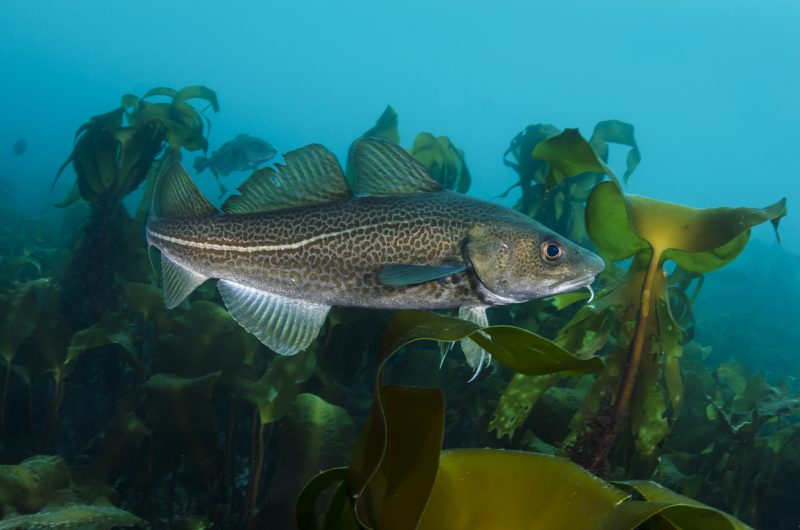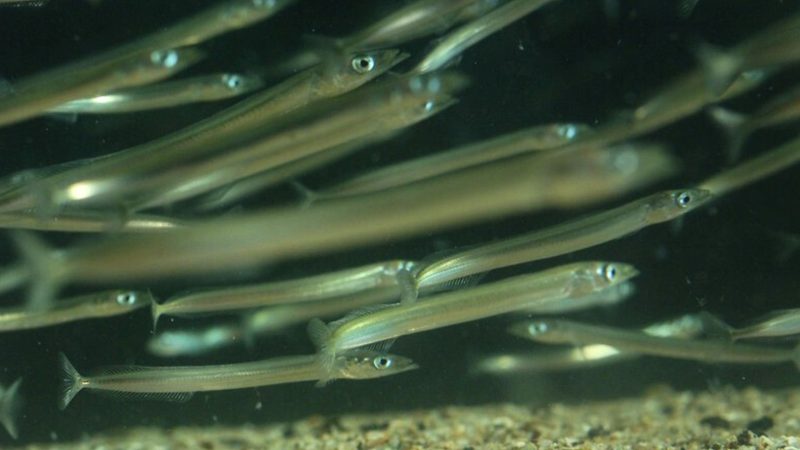Emergency action to prevent the collapse of bass stocks has been announced by the European Commission.
The main measure agreed by the European Commission is for pelagic trawlers to be barred from targeting bass during the spawning season from January to April.
It is likely to come into force by the end of January and other measures will be unveiled once they have been adopted by member nations.
Pelagic trawlers targeting aggregations of spawning bass in the western Channel are calculated to account for a quarter of the impact fishing has on the species.
Other measures are expected to target different types of fishing, including recreational angling, with the Commission intending to spread the pain fairly in its efforts to protect bass stocks. Bag limits for anglers are among the measures under consideration.
In a statement the Commission said: “These measures protect the stock from being targeted when at its most vulnerable; pelagic trawlers in the spawning season make up 25% of the impact on the stock.
“Recognising that all those who fish sea bass should make a balanced and fair contribution to saving this stock, it is proposed that the pelagic trawling ban will be complemented by a number of other measures which the Commission and the countries involved – UK, France, Belgium and the Netherlands – are putting together jointly.
“This will include measures to manage recreational fishing and limit catches of all other commercial fisheries. The Commission will work with the countries involved to finalise these measures and table a proposal to the Council in the coming weeks.”
The UK requested emergency measures amid ministerial frustration at the failure of the Fisheries Council to take action to halt the decline of bass.
UK fisheries minister George Eustice welcomed the measures: “Real action is being taken to protect bass stocks. The UK has consistently argued that there is need to reduce fishing pressure to protect concentrations of fish during the spawning season and prevent the collapse of stocks – the science is unequivocal.
“I am therefore delighted the European Commission has today announced a package of emergency measures aimed at averting the collapse of the declining bass stock. To build on this success I hope we can achieve agreement with other Member States on a wider package of measures that achieves a balanced approach, reflecting the contribution of both commercial fisheries and recreational anglers to declining bass numbers.”
The demand for emergency measures comes amid renewed debate about bass following the publication of a study for BLUE on the best use of the stocks for the economy.
The report for BLUE by consultants MRAG engendered considerable debate in the Commons in the two weeks running up to the EU talks. It was designed to assess the best environmental and economic use of bass in the context of dwindling stocks.
The report found that the value to the economy of a European bass caught by sea anglers using rod and line is more than three times that of a fish caught and landed commercially.
The report also found that bass fishing by anglers also creates three times the number of jobs as commercial fishing, with a lower environmental impact than any commercial fishing method other than hook and line.
According to the research commissioned by the Blue Marine Foundation from the respected fisheries consultancy, MRAG, anglers fishing in Sussex spent £31.3 million on tackle, charter boats and hotels to catch bass in 2012 and created 353 full time jobs. In comparison, commercial sea bass landings in Sussex generated only £9.25 million and 111 full time jobs.
The evidence of the report was that the best value to the economy would be if bass was caught solely with hooks but BLUE also recognised that small-scale netting for bass formed a vital economic lifeline for fishermen who were constrained by reduced quotas from catching other species.
BLUE is not opposed to sustainable netting under a science-based management plan.
Pair-trawling through spawning aggregations of bass had the highest discard rate, the highest by-catch of other species and delivered relatively low economic value compared to the differential with farmed bass possible with more selective fishing methods.
The report found little difference in economic return between netting methods but, crucially, it said that a more selectively fished product could be developed that could attract a premium and be a “cleaner” method in terms of by catch and discards than trawling.
Charles Clover, BLUE’s chairman, told Fishing News: “The easiest conclusion to reach from the report was that, when stocks are in a dire state, the only bass fishing should be with hooks.
“We are aware, however, that small-scale drift netting is of great importance to the small-boat fishermen of the south coast, who have limited access to quota species. This netting has relatively low impact though the minimum landing size at present does not permit bass to breed before they are caught.
“There is no reason why, with appropriate management of net sizes and lengths, a high-value, sustainable, net fishery cannot co-exist with a recreational fishery. It just requires appropriate regulation – which until now we have not seen.
“BLUE stands ready to work with small-scale fishermen to develop markets for sustainably caught, high quality bass. What our report shows most clearly is that pair trawling on spawning aggregations of bass should go, for it represents the worst value to the economy and employment and has the worst impact on stocks and the environment.
“It follows that it should face the greatest restriction.”
BLUE is working successfully with fishermen in Lyme Bay to define sustainable netting techniques and is implementing the country’s first fully documented fishery which is expected to have market benefits for fishermen.
BLUE is committed to working with any part of the fishing sector to achieve improvements in sustainability combined with market benefits.
The report added fuel to the debate on UK sea bass stocks in the House of Commons today (3.12.14) read the full, official transcript here:http://www.bluemarinefoundation.com//www.bluemarinefoundation.com//app-crist.8yrmnzecav-zqy3jxpny4kg.p.runcloud.link//www.publications.parliament.uk/pa/cm201415/cmhansrd/cm141203/halltext/141203h0001.htm#14120349000001
Download the full report here.


















